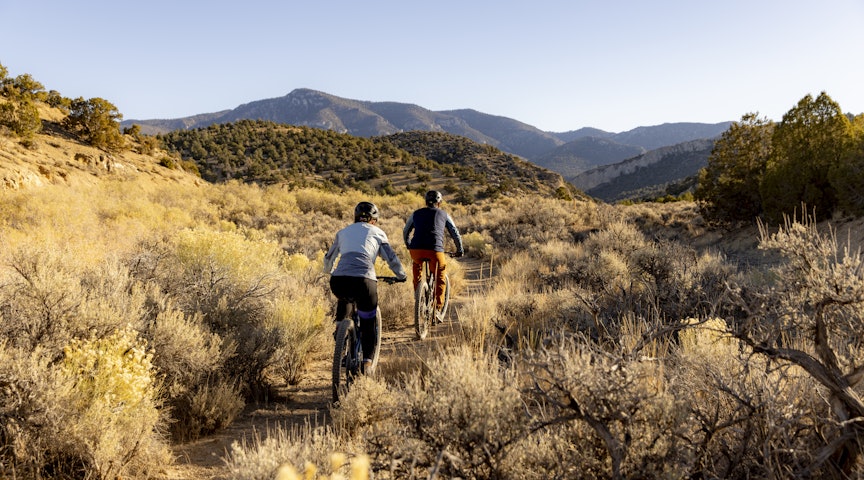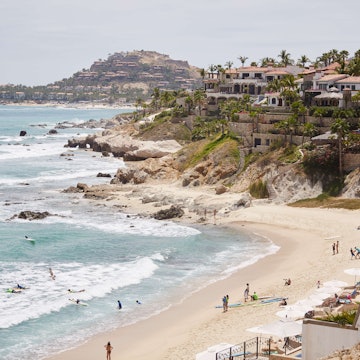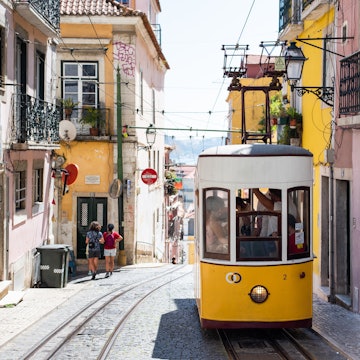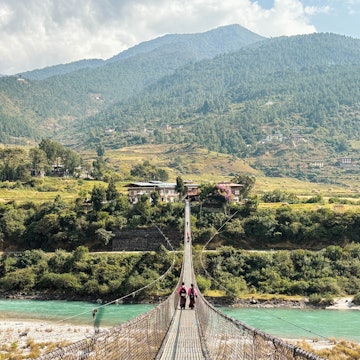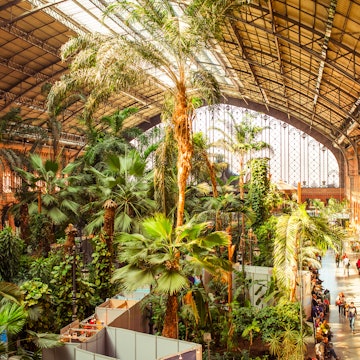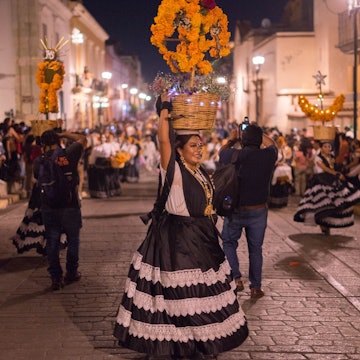
The best museums in Albuquerque explore the city's past and future

Dec 13, 2021 • 5 min read

Zuni Pueblo dancers in the outdoor plaza of Indian Pueblo Cultural Center in Albuquerque © John Elk III / Getty Images
Albuquerque museums tell dynamic human and natural stories that have all contributed to making the city what it is today. From Native American cultures that have inhabited the area for several milennia to Albuquerque’s contributions to science and space exploration, these institutions present complex histories and exciting possible futures that make New Mexico a fascinating destination. Here are Albuquerque’s best museums for explorers of all ages.
Indian Pueblo Cultural Center
The Indian Pueblo Cultural Center celebrates the lifeways of New Mexico’s first people: Native American Pueblo tribes. Interactive exhibits include interviews with tribal elders sharing their memories and knowledge about their Pueblos’ cultures and traditions, and works of Native New Mexico artists, writers, poets and musicians are showcased. On weekends, Pueblo members dance in the outdoor plaza. Enjoy lunch and dinner at Indian Pueblo Kitchen and shop the Indian Pueblo Store for fine art created by Pueblo artisans.
¡Explora!
Called a children’s museum but enjoyed by adults just as much, ¡Explora! is an interactive, hands-on STEM playhouse with open-ended displays exploring light, sound, water, energy, engineering and math. Visitors can fly a model airplane in a wind tunnel, ride a bicycle across a two-story tightrope, open play with marbles and tracks, create stop-animation movies, make huge bubbles and engage in other fun activities with underlying science and engineering concepts.

Albuquerque Museum and Casa San Ysidro
From pre-European contact to New Mexico statehood in 1912 through today, the Albuquerque Museum weaves together stories throughout the city’s centuries. Native life before the arrival of the Spanish in 1540, Mexican independence, the American Civil War and other significant periods are told with artifacts and hands-on exhibits. The artwork of American masters like Georgia O’Keeffe and Ernest L. Blumenschein, who made their homes in New Mexico, are presented. And rotating national exhibits cover everything from ancient events to pop culture. Casa San Ysidro, the Albuquerque Museum’s satellite museum in the Village of Corrales north of Albuquerque, is an 1800s adobe home filled with items common in New Mexico households from the 1700s into the 20th century.
Unser Racing Museum
The Unser Racing Museum shares the story of the Unsers, a family whose members have won multiple Indianapolis 500 races and many other auto-racing firsts and honors. Racing enthusiasts will appreciate the large collection of cars, engines, track diagrams, media and other significant items from auto-racing history.
National Museum of Nuclear Science & History
From war to medicine, the complex and storied uses of atomic energy are considered at the National Museum of Nuclear Science & History. New Mexico’s critical role in the development and detonation of the first atomic bomb is discussed, as well as the Cold War that followed. Nuclear medicine, power and other peaceful uses for atomic energy are detailed, as are public concerns regarding nuclear energy through the decades. On display within the museum's 12-acre grounds are a B-52 bomber and missiles, jets, and other military equipment.

American International Rattlesnake Museum
Learn about the importance of oft-misunderstood rattlesnakes to New Mexico’s ecology at the American International Rattlesnake Museum in Old Town, where species of rattlesnakes and other reptiles and amphibians found throughout New Mexico are (safely) exhibited. The museum staff dispels myths surrounding these shy animals, and visitors can handle rattlesnakes’ harmless cousins such as corn snakes and other docile reptiles.
Turquoise Museum
Housed in the castle-like home of the late jewelry designer Gertrude Zachary, the Turquoise Museum takes a deep dive into New Mexico’s state gem. Exhibits include notable turquoise examples and fine jewelry made by many cultures incorporating this semi-precious stone. And the eclectic building itself is worth a stop with its antiques, gargoyles and more than 50 crystal chandeliers.
New Mexico Holocaust Museum
Located in downtown Albuquerque, the New Mexico Holocaust Museum examines the history of the Holocaust and anti-Semitism, as well as injustice and equal rights movements through today. Artifacts displayed include the Flossenbürg Flag, an American flag made by people held in Flossenbürg concentration camp and given to a liberating soldier from Albuquerque. The struggle for rights of other minority groups including Native Americans, African Americans, Chinese laborers, LGBTIQ+ and other people marginalized throughout history are discussed as well.

New Mexico Museum of Natural History and Science
Some 250 million years ago half of New Mexico was covered by a shallow sea, and dinosaurs stomped where jackrabbits roam today. Learn about the state’s prehistory at the New Mexico Museum of Natural History and Science in Old Town where visitors can watch paleontologists chisel at fossils and marvel at the skeletons of dinosaurs, mammoths and other behemoths that once trod here. Walk through a volcano and learn about New Mexico’s pyroclastic past, then contemplate the universe in the planetarium and control a Mars Rover that was designed in part at Sandia National Laboratories in Albuquerque.
Anderson-Abruzzo Albuquerque Balloon Museum
The Anderson-Abruzzo Albuquerque Balloon Museum at the Albuquerque International Balloon Fiesta grounds is a 60,000 sq ft building devoted to the history of ballooning. The role of balloons in war, peace, science and adventure are studied, and exhibits cover the first 1783 flight in France to stratospheric missions that graze the edge of space. The facility is named for Albuquerque balloonists Max Anderson and Ben Abruzzo who in 1978 with Larry Newman made the first non-stop crossing of the Atlantic Ocean by gas balloon, the Double Eagle II.
Maxwell Museum of Anthropology
Human development through the eons in New Mexico and the rest of the world is the focus of the Maxwell Museum of Anthropology on the University of New Mexico campus. Permanent exhibits include “People of the Southwest and Ancestors,” and the museum’s “Current Issues in Anthropology” looks at the impact of climate change and other current issues on humans around the planet. Ancient tools, clothing, textiles and art from world cultures are interpreted, and the museum’s collections are available to researchers.
You might also like:
Best things to do in Albuquerque
The 7 best day trips from Albuquerque
The Southwest USA's 7 best hiking trails
Take your United States (USA) trip with Lonely Planet Journeys
Time to book that trip to United States (USA)
Lonely Planet Journeys takes you there with fully customizable trips to top destinations–all crafted by our local experts.
